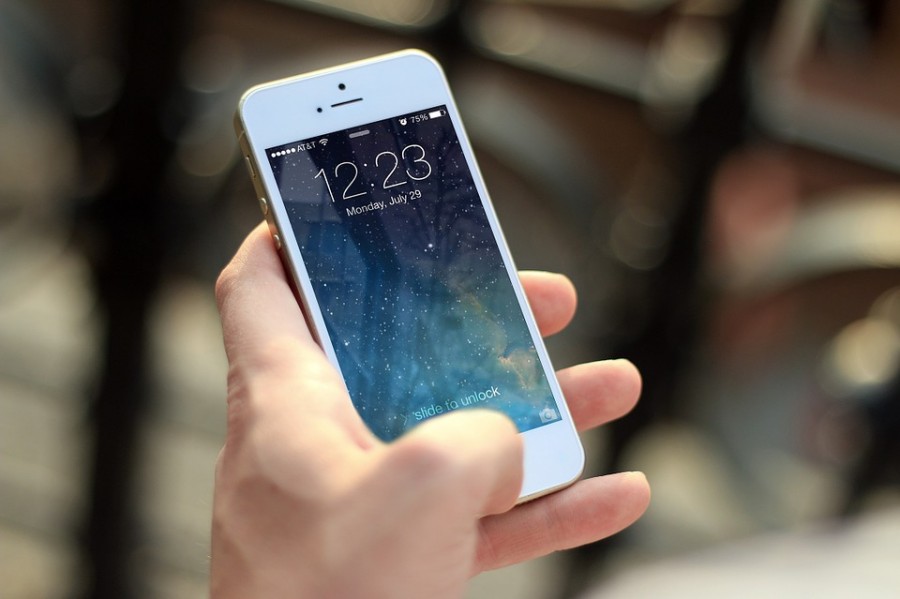Apple should not be forced to unlock iPhones by the FBI
An invasion of privacy. We no longer know what that is anymore. However, it is clearly against the law and should never be acted upon.
The term invasion of privacy was made exactly for legal purposes when people are intruding on someone else’s personal life. Individuals can file lawsuits against people who have invaded their privacy.
But the fact of the matter is, what now constitutes as a “private life” and what constitutes as “invasion” or “intruding” is a blurred line. Without clear, concrete definitions, as well as certain variables that dictate whether it is ethical to open someone’s phone without their permission, each case is hard to dictate.
There’s been a big debate over whether Apple should unlock phones used by criminals in order to find out the future plans or perhaps any insights as to how to find the criminals and gain information, such as in the case of San Bernardino. However, the potential power given to our government is not worth having them stop one barely harmful criminal.
All things considered, that one crime is miniscule in effect. Tragic, yet unimportant. I feel for all the families having to deal with it and couldn’t possibly empathize with how they feel. I understand why they want the criminals to be punished and out of the streets before they can cause more harm.
As a result of our government not being more able to get into phones and discover criminals, terrorism could be more of a problem and there could be more killings nationwide.
Furthermore, all Apple has to do is reduce the time people are locked out from inputting a passcode so petty thieves would have trouble breaking into a phone while cops or agents would have the time to unlock the phones by trying the different number patterns.
However, all this is being dictated by an the All Writs Act, which allows the court to issue writs if it can be used appropriately in the case, passed 200 years ago. The 200 years that have passed have then since seen the growth and rise of a nation that hasn’t been seen before. However, we are still following and being dictated by an outdated law that could be changed by our government.
Still, 200 years later, we are dictated by and listening to a simple piece of paper that could be changed. Although it was one of the guiding principles of our countries, with everyone being able to be seen or found out over the internet so quickly, this one privacy means so much to certain people.
I dare say almost no high schooler or even adult for that matter would feel very comfortable with someone checking our phone for national security reasons. This is because it has private information that does not have to be shared with the common public.
Actually, this matter isn’t even a threat of national security. A search warrant allowing cops to look into someone’s phone is simply unfair and cannot be allowed, as it just gives the government way too much power of being able to escalate from doing it once in awhile when they have the suspect’s phone, to a common occurrence of having to check even innocent people’s phones.
In this one case, I would argue that unlocking the phone would help substantially with the case. If it was refined to this one case, I would agree that it should be done. After all, we have confirmed the suspect is at fault and unlocking the phone would not be an invasion of privacy, as the user has clearly violated national law and has revealed himself to the public.
However, it’s never that simple. This one case could lead to multiple struggles and arguments in the future, over which the government could bring up this one past case where Apple unlocked the phone and it helped improve security.
Ultimately, it is a long struggle that is not just recent in the case of privacy with phones, but an ultimate battle of privacy versus security that is being debated in multiple cases such as body cameras, or airport body scanners.
by BENJAMIN KIM








![On the stage, Daniel Bozinovski and Rachel Treto play their part as Tom and Hannah in the show “The Cast List”. The show was about a group of students who were told about their cast list for the play “Romeo and Juliet.” The Theater I students were in preparation for their first showcase of the year. Students went over their lines during all of their class for the past two months. “[We put in] a lot of rehearsal, practicing lines, making sure you have everything memorized and making sure you are ready to go in and not forget anything,” Nathan Weeks said. Photo by Megan Kubas.](https://www.whitneyupdate.com/wp-content/uploads/2024/05/IMG_4085-600x396.jpg)
